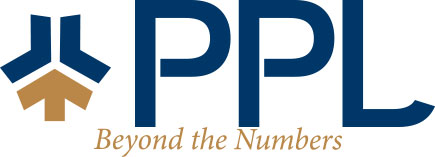There are many different variations of the 1099 form, but the 1099-K is a tax form that shows all the payments you received through a credit or debit card or some other electronic payment system (these are also known as “third-party payment settlement entities” or PSEs . . . Yeah, that’s a mouthful).
Some of these systems include well-known third-party payment platforms like PayPal, Stripe, Venmo, Cash App and others that are popular with folks who have a side hustle or small business. These platforms will send you a 1099-K form, and another copy goes to the IRS so everyone is on the same page.
Up until the end of 2021, you normally only received a 1099-K tax form if you sold $20,000 or more in goods or services, with a minimum of 200 transactions throughout the year on those platforms.
But starting in 2022, all that changes. Now anyone who receives $600 from selling goods or services from third-party payment platforms (like PayPal and Venmo) or online services (like Uber or eBay) will receive a 1099-K—and there’s no more transactions minimum.
Just to be clear, these changes will not affect your taxes for the 2021 tax year (unless you live in one of the few states that have already implemented these changes. More on that in a second). But if you meet that much lower threshold for sales made using a third-party payment network in 2022, keep an eye in the mail for a tax form in early 2023.
Why Is the IRS Changing the 1099-K Threshold?
According to a recent study, there are potentially thousands of gig economy workers misreporting or underreporting their incomes because they don’t receive a 1099-K form, leading to billions of dollars in lost tax revenue. (Side note: Even if you don’t receive a 1099-K, you are still required to report your business-related income when you file your tax returns.)
In fact, the difference between what taxpayers owe and what they actually pay (which is commonly known as the tax gap) is about $166 billion per year, according to the U.S. Treasury Department. Uncle Sam doesn’t like that one bit!
The American Rescue Plan Act, signed by President Joe Biden back in March 2021, attempts to solve that problem by significantly lowering the 1099-K threshold. They hope that the change will lead to more accurate tax reporting and give the government a more accurate picture of just how much the gig economy has grown (especially in the wake of the COVID pandemic).
Like it or not, this change means there will be a lot more folks receiving and filing 1099-K forms with the IRS in 2023 (for the 2022 tax year). For many gig workers and third-party platforms, that also means more paperwork when tax season rolls around—so just get ready for that.
Also keep in mind that some states have already implemented this rule, lowering their 1099-K thresholds well under $20,000—some as low as $600. That means if you’re living and working in one of these states, you can probably expect to receive a 1099-K in early 2022 for the 2021 tax year:
- Arkansas
- Illinois
- Massachusetts
- Washington D.C.
- Maryland
- Mississippi
- Missouri
- New Jersey
- Vermont
- Virginia
Those states were ahead of the curve, and the federal government is now catching up—just faster than expected.
Who Is Affected by These 1099-K Changes?
The new law paints a clearer picture of who needs to receive a 1099-K form. It says that Form 1099-K reporting for third party payment networks is supposed to apply only to transactions for “goods or services.”
For those of you with a side hustle and customers who pay you through platforms like Venmo or PayPal, those payments will count as taxable income and will need to be reported to the IRS. If you sell $600 worth of earrings through Venmo in 2022, you can expect to receive a 1099-K from Venmo.
If you only use Venmo or PayPal for things like personal gifts, charitable contributions and reimbursements, you’re in the clear. These changes will only apply to business accounts on each platform or transactions that are categorized as business transactions. Your friends paying you back for the pizza you ordered last night or your uncle sending you a bit of money for your birthday will not count as taxable income.
What if you were just selling a few items online and using one of these platforms to receive payment? Let’s say you sold a television online for $1,000 through eBay. As long as you have a receipt that proves that you paid more than $1,000 for that TV, then that money won’t count as taxable income either.
What Should I Do if I Receive a 1099-K?
When you receive a 1099-K, it’s important to remember that the form is there to relay information—what may be treated as an income by a third-party payment network may not actually be income for you. So it’s up to you to read through the 1099-K and figure out what is actually business income. That’s why you might want to think about getting expert tax advice from a tax professional.
Here are a few things you should do once you get your 1099-K from a third-party payment network:
1. Print out a transaction report.
Most platforms will let you print out all the transactions you made on their service during the calendar year. The first step is to download and print out a copy of those transactions so that you can get a complete picture of your transactions throughout the year.
2. Separate your business transactions from your personal ones.
Next, you’ll need to go through each of those transactions and figure out which ones were business and which ones were personal. That way, you can figure out what is actually business revenue versus what was just a birthday gift sent by your uncle or BFF.
Pro tip: Most third-party payment networks like Venmo and PayPal offer you the chance to get a business profile so that it’s easier to keep business and personal stuff separate!
3. Gather receipts and invoices.
The right documentation will help you prove what is business income and what isn’t. So make sure you keep organized records of receipts and invoices in case the IRS asks you to prove that a certain transaction was just between friends and not a business transaction.
4. Work with a tax professional.
Things can get tricky and overwhelming once you get a bunch of different tax forms involved. And one way to take the stress out of tax season is to work with a tax professional you can trust!

